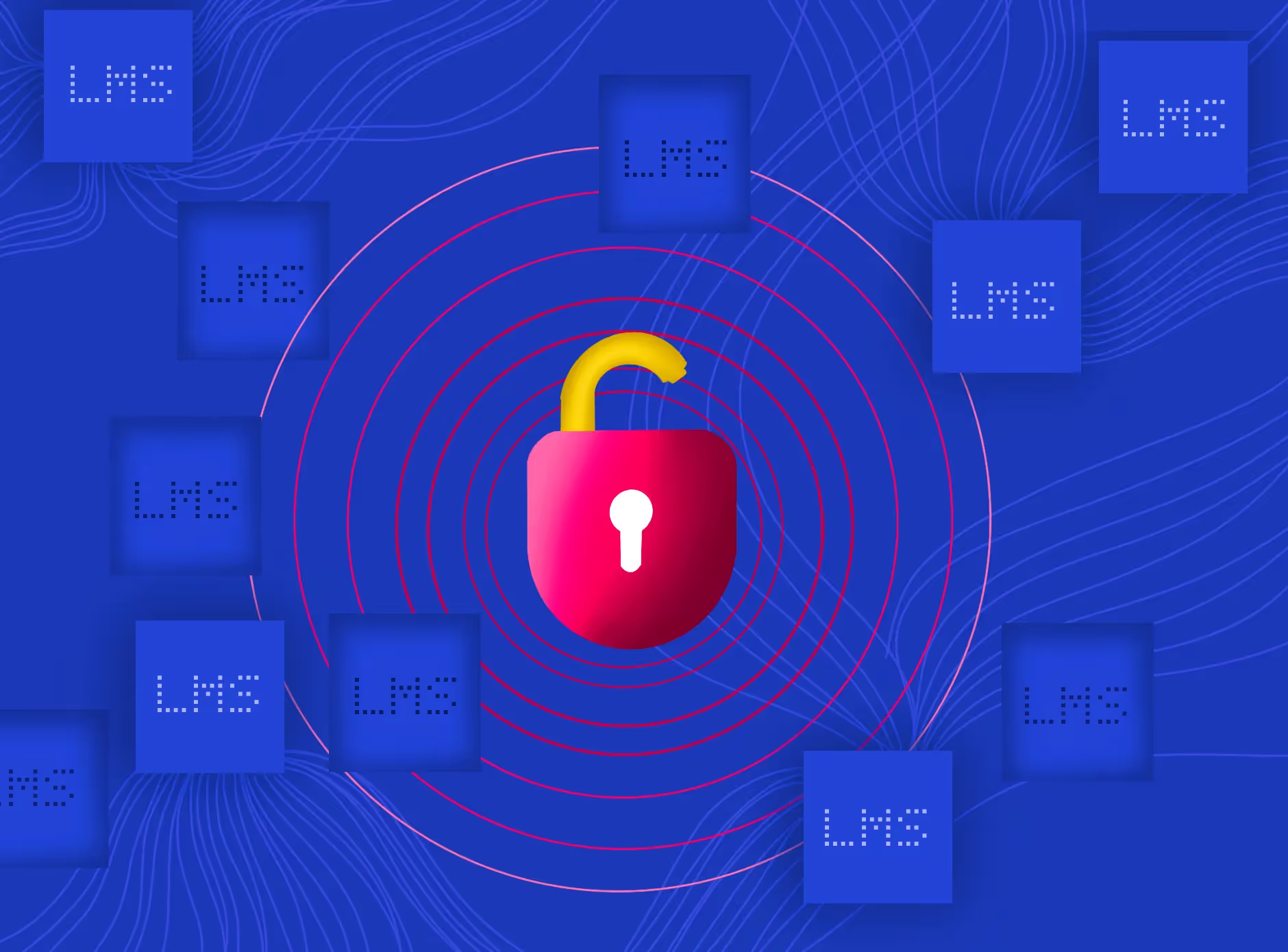
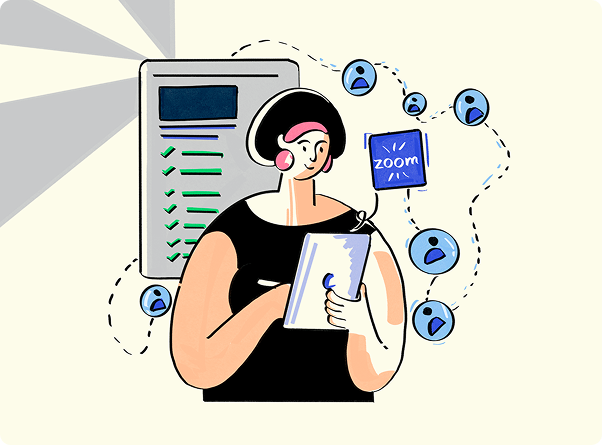

Key Takeaways
- Retail LMS platforms streamline employee training, boosting productivity and customer satisfaction.
- Implementing a retail LMS can save significant costs by reducing in-person training needs.
- This page covers top retail LMS options, benefits, and key considerations for choosing the right platform.
Retail thrives on quick transactions and high customer expectations. A recent study found that using retail LMS software can cut training costs by up to 40% while boosting employee retention rates and job satisfaction. (Source)
With an LMS for retail, businesses can deliver consistent training on product knowledge, customer service, and compliance, ensuring teams are always prepared and up to date.
This blog covers:
- The best LMS for retail in 2025, including free and paid options.
- Key benefits of implementing an LMS for retail businesses.
- Actionable tips to select the right system for your team.
Discover how the right retail LMS software can transform your training strategy and help your team excel.What is a Retail Learning Management System (LMS)?A Retail Learning Management System (LMS) is a software platform focused on providing training for the retail industry. It organizes learning materials, assessments, and tools for employee development.These systems help managers and HR teams deliver consistent training across locations, covering topics like product knowledge, customer service, compliance, and policies. This approach improves efficiency and team performance.By replacing in-person sessions with digital solutions, an LMS helps reduce training costs, improve workforce skills, and support businesses in meeting modern retail challenges effectively.Top 10 Learning Management Systems for Retail Industry in 2025: With countless retail LMS platforms available, finding the right fit can be overwhelming. We've reviewed and analyzed numerous options, focusing on features, pricing, and unique advantages for retail businesses.
This list of the top 10 retail LMS platforms in 2025 will help you make an informed choice for your training needs.
In-depth review of the top 10 Retail LMS platforms in 2025
Here, we will expand on each platform, detailing features, pros, cons, integrations, ratings, and pricing specifics. We have reviewed all the tools in-depth, which will help you evaluate which one to pick.
1. EdisonOS
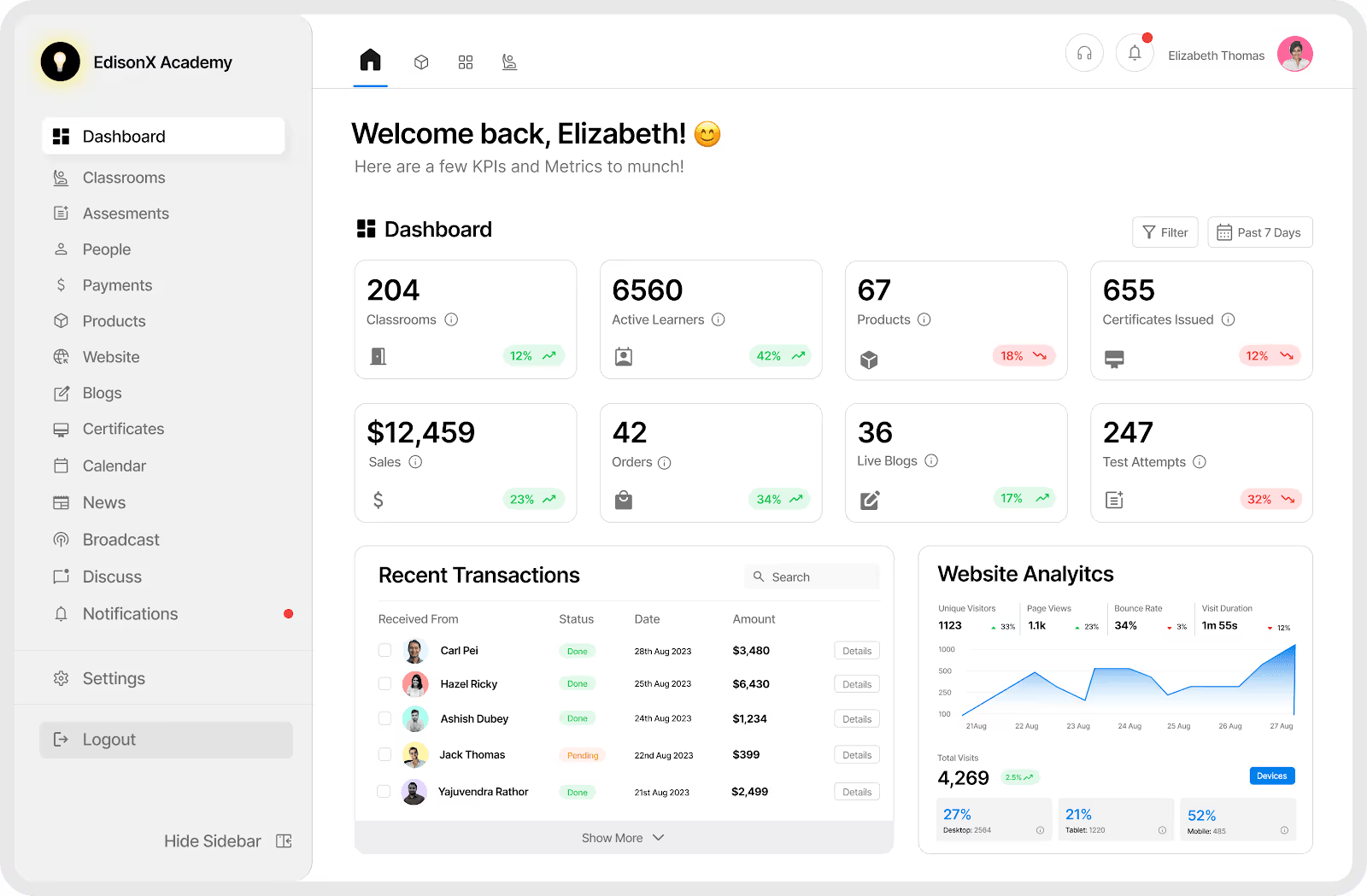
EdisonOS is a platform developed to address the unique training needs of retail businesses. It provides a user-friendly way to train employees on skills, product knowledge, and compliance, helping them stay prepared for daily operations.
As a training manager, I appreciate how EdisonOS simplifies onboarding and ongoing development. It enables the creation of interactive training modules, tracks employee progress, and supports learning across multiple locations, ensuring teams are well-prepared and aligned.
Retailers prefer EdisonOS for its role-specific learning paths, detailed analytics, and mobile-ready design. The platform supports effective training delivery, helping businesses improve efficiency and maintain consistent standards.
Key Features
- Customizable learning paths tailored to specific job roles
- Robust content management system for multimedia training materials
- In-depth analytics and reporting tools to track employee progress
- Mobile-friendly interface, allowing for on-the-go training
- Built-in assessments and quizzes to ensure knowledge retention
Pros
- Intuitive and easy-to-navigate interface
- Strong focus on analytics, enabling data-driven improvements
- Scalable solution suited for small and large retail businesses alike
- Flexible content options, supporting videos, quizzes, and interactive modules
Cons
- Advanced customization options may require training for new administrators.
- Limited integration with some third-party POS systems
Integrations
EdisonOS integrates with various HR, CRM, and compliance management tools, making it easy for retailers to align training with broader business systems.
Ratings
4.8/5
Pricing
Pricing for EdisonOS starts at $159/month, with scalable options available for businesses of different sizes and requirements.
2. TalentLMS
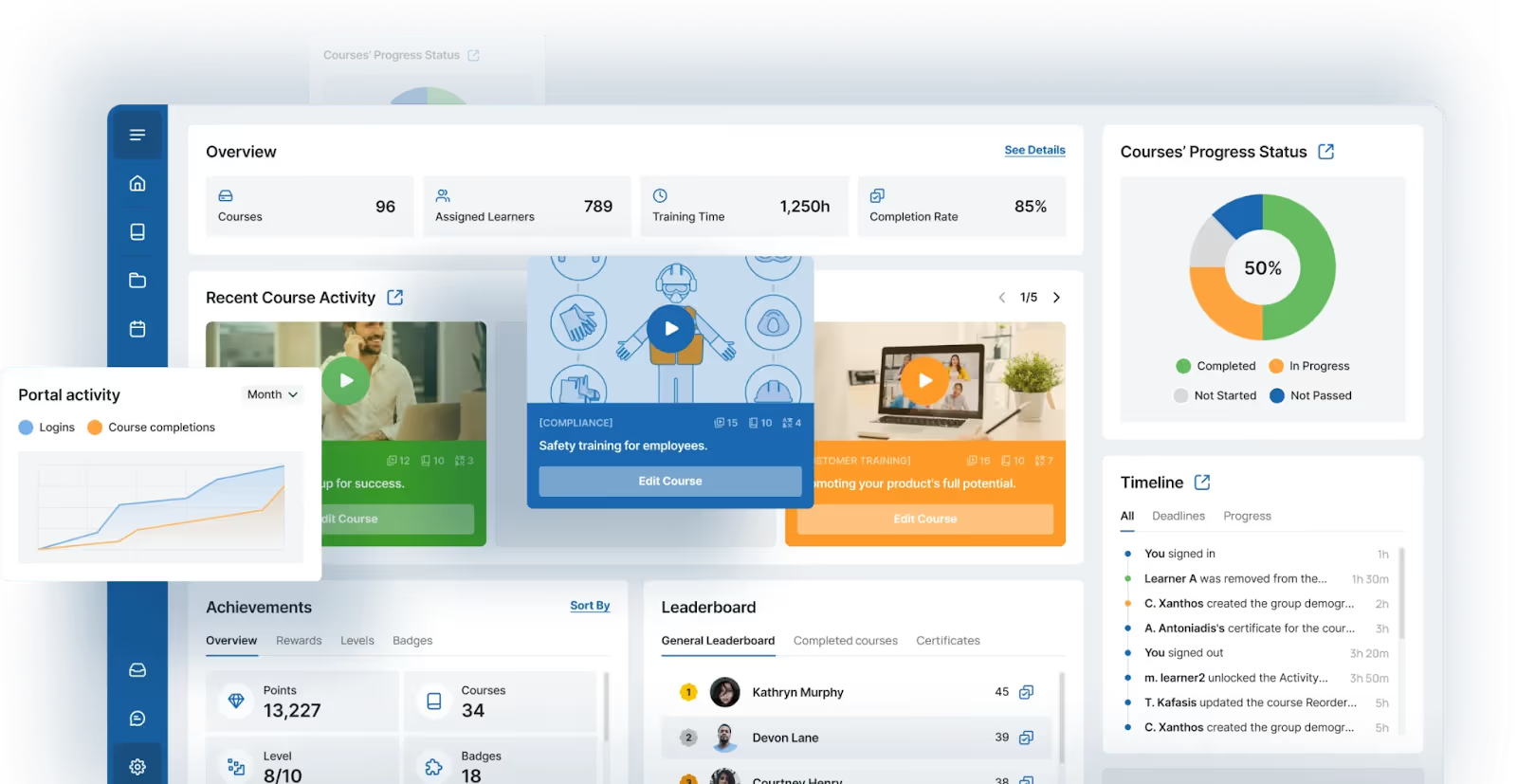
TalentLMS is a platform built to streamline employee training for retail businesses. Its straightforward interface and cloud-based setup make it easy to create and deliver training on compliance, product knowledge, and customer service.
Retail training managers appreciate TalentLMS for its flexibility and automation. It simplifies onboarding, allows staff to complete training at their convenience, and tracks compliance seamlessly, ensuring consistent performance across locations.
Retailers favor TalentLMS for its mobile accessibility, affordability, and ability to customize training paths. It supports various content formats, catering to diverse learning preferences and improving training efficiency.
Key Features
- Automated onboarding and compliance tracking
- Support for multimedia learning formats, including videos and quizzes
- Cloud-based platform accessible from mobile and desktop devices
- Advanced analytics and reporting capabilities
- Customizable training paths tailored to specific job roles
Pros
- User-friendly setup and navigation
- Strong mobile accessibility, supporting remote training
- Affordable pricing suitable for small to mid-sized businesses
- Customizable modules that can be tailored to different retail roles
Cons
- Limited customization in design and branding
- Advanced reporting features may require additional setup
Integrations
TalentLMS integrates with popular HR and CRM tools, including BambooHR and Salesforce, making aligning training data with other business operations easy.
Ratings
Overall- 4.5/5
Pricing
Pricing for TalentLMS starts at $69/month, with options for larger businesses and additional features available at higher tiers.
3. SAP Litmos
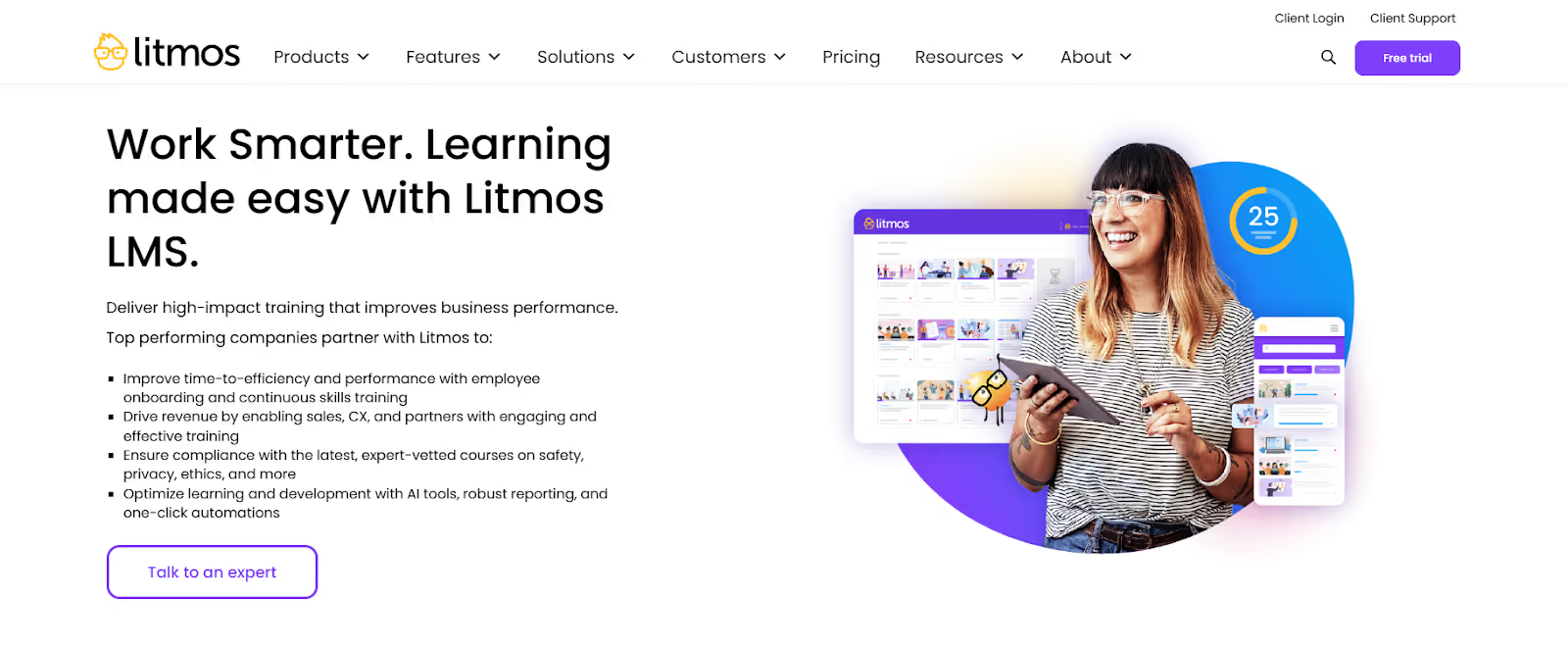
SAP Litmos offers a comprehensive platform for training large-scale retail operations. Its centralized content library and role-specific learning paths make it ideal for maintaining consistent training standards across multiple locations.
Retail training managers use SAP Litmos for its ability to handle high-volume training. The platform supports multimedia content and detailed reporting, making it easier to measure effectiveness and ensure compliance.
Retailers select SAP Litmos for its scalability, multimedia support, and focus on compliance. It’s well-suited for businesses with extensive networks looking to ensure all employees are properly trained.
Key Features
- An extensive content library with multimedia support, including simulations
- Customizable learning paths for different roles
- Detailed analytics and reporting tools for performance tracking
- Built-in compliance training for industry regulations
- Mobile-responsive design, supporting remote and in-store training
Pros
- Highly scalable and suitable for large organizations
- Strong reporting and compliance tracking tools
- Customizable content with extensive multimedia support
- Intuitive mobile-friendly platform
Cons
- Higher pricing tier may not be suitable for smaller businesses
- Requires onboarding time for administrators due to its feature complexity
Integrations
SAP Litmos integrates seamlessly with major HR, CRM, and business tools, such as Salesforce, Microsoft Teams, and BambooHR, enabling efficient data synchronization across platforms.
Ratings
4.6/5
Pricing
Pricing for SAP Litmos is custom, with tailored packages available based on business size and requirements.
4. Docebo
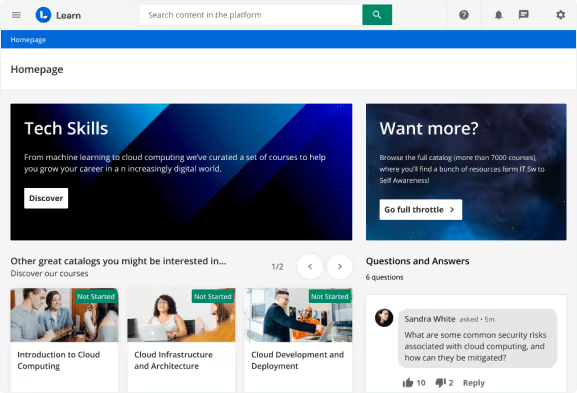
Docebo provides an AI-driven LMS designed for collaborative and engaging learning experiences. It uses artificial intelligence to recommend personalized learning paths, making it a modern choice for retail training.
Retail training managers rely on Docebo for its focus on social learning. Peer discussions, interactive content, and feedback mechanisms encourage employee engagement and continuous skill development.
Retailers choose Docebo for its AI-powered recommendations and collaborative features. These tools create an interactive learning environment that keeps employees motivated and informed.
Key Features
- AI-powered learning recommendations for personalized learning paths
- Social learning features, including peer discussions and feedback
- Customizable training content with multimedia support
- Robust analytics and tracking to monitor learning outcomes
- Mobile-friendly interface for accessible, on-the-go training
Pros
- AI-powered customization enhances learning relevance
- Strong focus on social and collaborative learning
- Customizable content with intuitive navigation
- Excellent support for mobile training
Cons
- Higher pricing model due to AI-driven features
- Learning curve for administrators setting up advanced functions
Integrations
Docebo integrates with various HR, CRM, and business platforms, including Workday, LinkedIn Learning, and Salesforce, enhancing training workflows.
Ratings
4.5/5
Pricing
Pricing for Docebo is available upon request, with customized plans based on business needs.
5. Absorb LMS
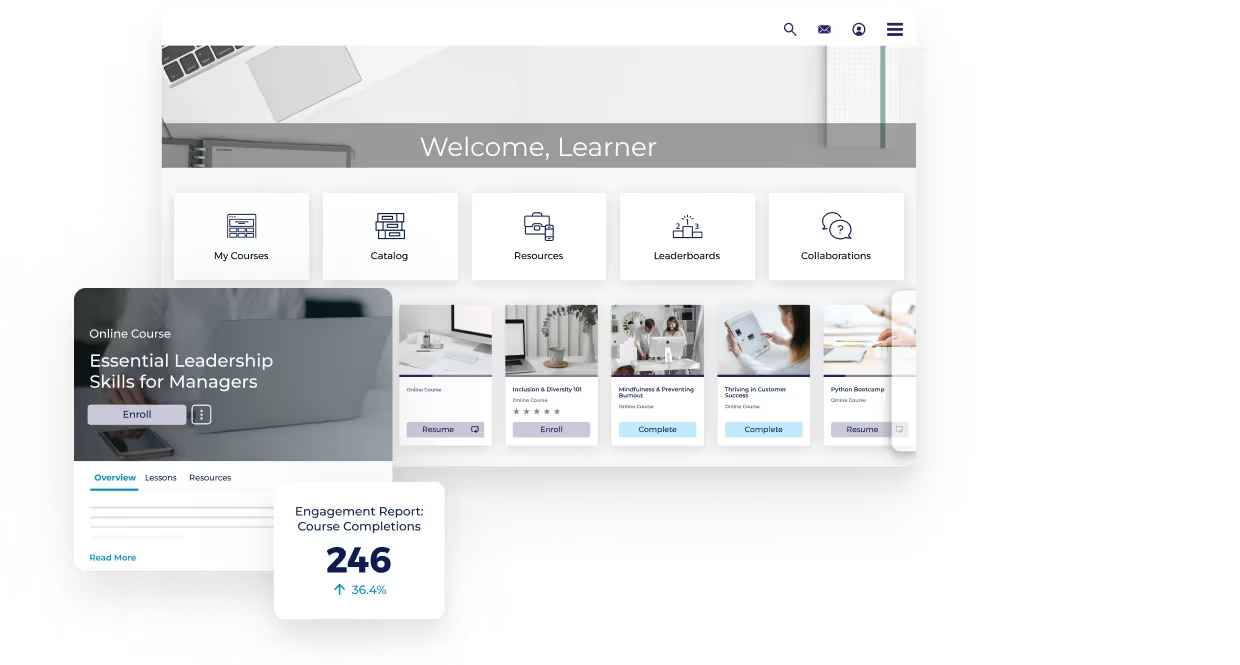
Absorb LMS offers a flexible platform that supports engaging training for retail businesses. Its focus on interactive learning modules helps employees retain knowledge and apply it effectively.
Retail training managers appreciate Absorb LMS for its ease of use and dynamic content options. It simplifies onboarding and ongoing skill development while offering comprehensive analytics to track progress.
Retailers value Absorb LMS for its focus on engagement, interactive features, and mobile accessibility. It provides a versatile solution for training employees across different roles.
Key Features
- Interactive learning modules, including quizzes and role-playing
- User-friendly interface and easy setup
- Comprehensive reporting and analytics for tracking performance
- Customizable content for various job roles
- Support for mobile learning for remote accessibility
Pros
- Flexible and intuitive design
- Interactive modules enhance engagement and retention
- Strong analytics and tracking capabilities
- Supports multimedia content with ease
Cons
- Limited branding customization options
- Reporting depth may require additional setup for advanced tracking
Integrations
Absorb LMS integrates with popular HR and business tools, including BambooHR, Salesforce, and Workday, enabling seamless data management across platforms.
Ratings
4.5/5
Pricing
Absorb LMS offers custom pricing based on company size and feature requirements.
6. Cornerstone OnDemand
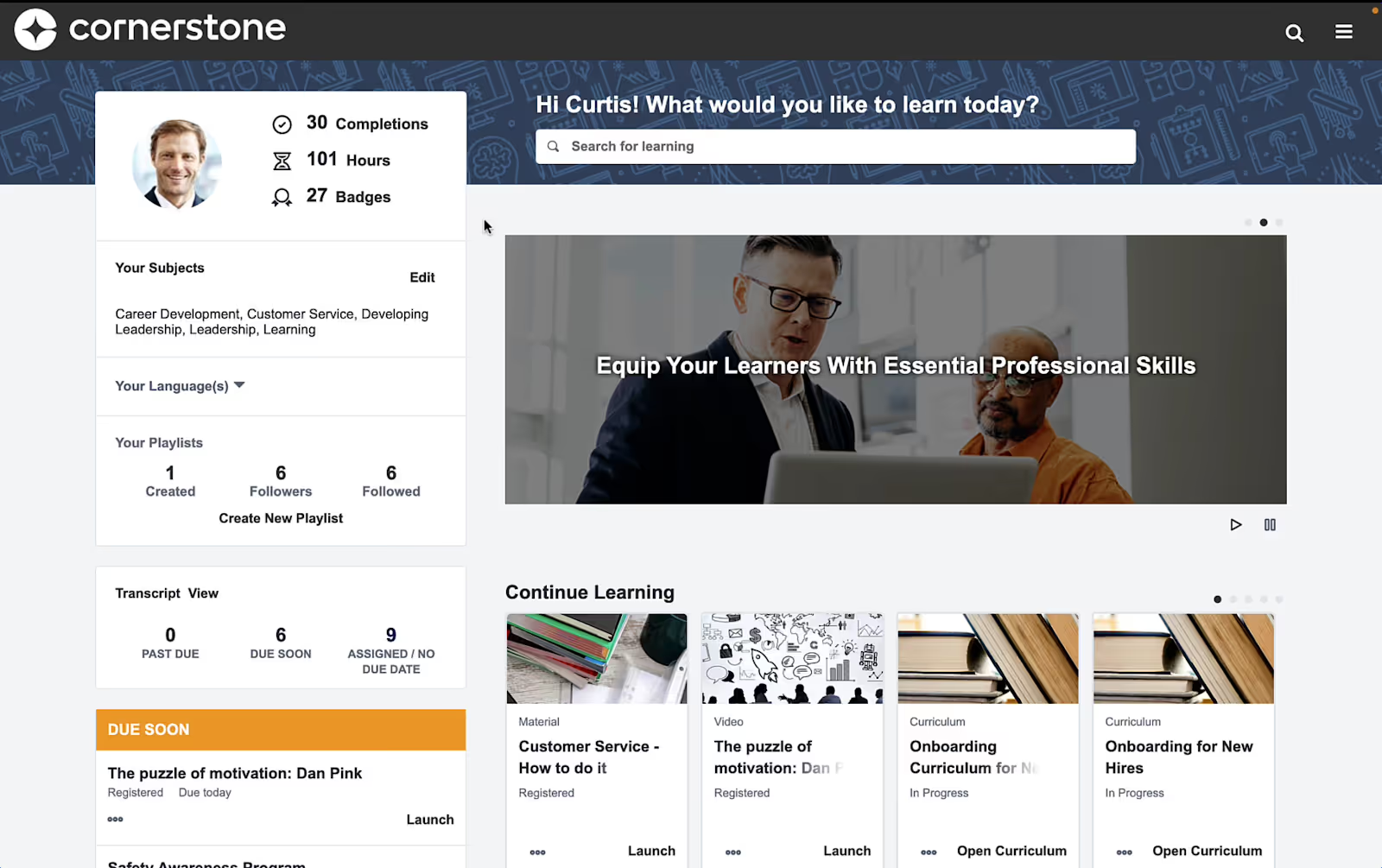
Cornerstone OnDemand is designed to meet the compliance and safety training needs of large retail chains. Its tools simplify the creation and deployment of mandatory training across multiple locations.
Retail training managers use Cornerstone OnDemand to streamline onboarding and ensure adherence to safety and data privacy standards. The platform also provides detailed analytics for tracking training completion.
Retailers prefer Cornerstone OnDemand for its extensive compliance features and scalability. It’s particularly effective for organizations prioritizing employee safety and regulatory adherence.
Key Features
- Compliance tracking with real-time monitoring
- An extensive library of compliance and safety courses
- Customizable learning paths and progress tracking
- Robust analytics and reporting for compliance documentation
- Mobile access for training anytime, anywhere
Pros
- Strong compliance and safety training focus
- Highly customizable learning modules
- Extensive reporting for compliance documentation
- Scalable for large retail operations
Cons
- Higher price point, more suited to larger businesses
- Complexity may require training for full utilization
Integrations
Cornerstone OnDemand integrates with a variety of HR, ERP, and CRM systems, including Workday, SAP SuccessFactors, and ADP, facilitating seamless data flow across business platforms.
Ratings
4.4/5
Pricing
Pricing for Cornerstone OnDemand is customized based on organization size and specific training requirements.
7. LearnUpon
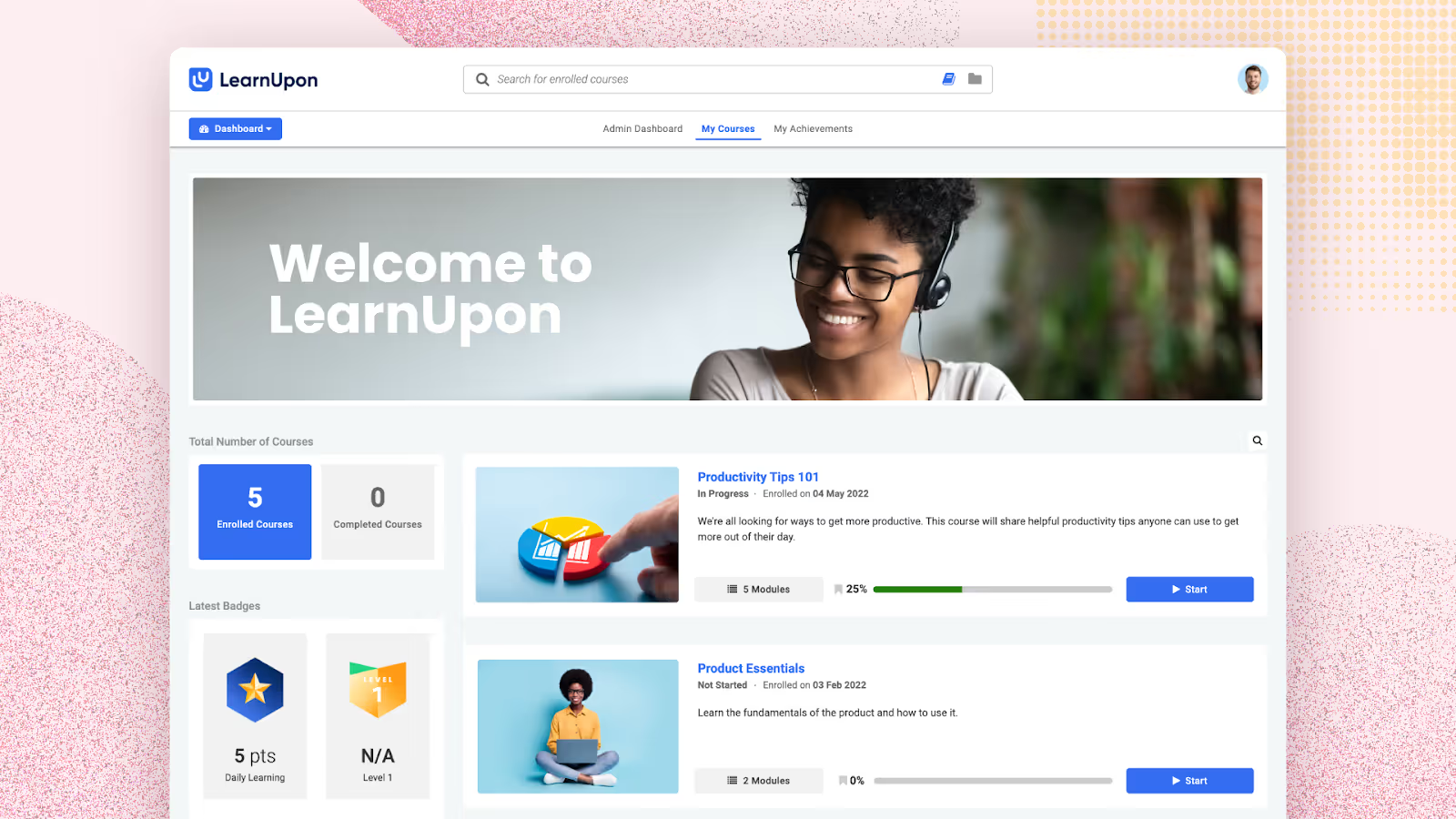
LearnUpon is a flexible LMS suited for mid-sized retail businesses. It combines an intuitive interface with tools for creating and delivering engaging training, making it a practical option for onboarding, compliance, and skill development.
Retail training managers use LearnUpon for its ease of use and customization. The platform simplifies course creation, supports diverse training needs, and integrates seamlessly with POS systems to train employees directly on retail tools.
Retailers choose LearnUpon for its simplicity, POS integration, and ability to adapt to various roles. It helps ensure consistent training and service quality across multiple locations.
Key Features
- POS integration for role-specific training
- Customizable course creation tools and learning paths
- Easy-to-navigate interface with mobile accessibility
- Advanced tracking and reporting to measure learning effectiveness
- Scalable design to support multi-location training
Pros
- Intuitive and user-friendly interface
- POS integration simplifies on-the-job training
- Customizable learning paths enhance relevance
- Strong support for mobile training
Cons
- Higher starting price for advanced features
- Limited branding customization
Integrations
LearnUpon integrates with major HR and business applications, including Salesforce, BambooHR, and various POS systems, allowing seamless data sharing across platforms.
Ratings
4.6/5
Pricing
LearnUpon pricing starts at $599/month, with scalable packages available for larger organizations or additional features.
8. Kallidus Learn
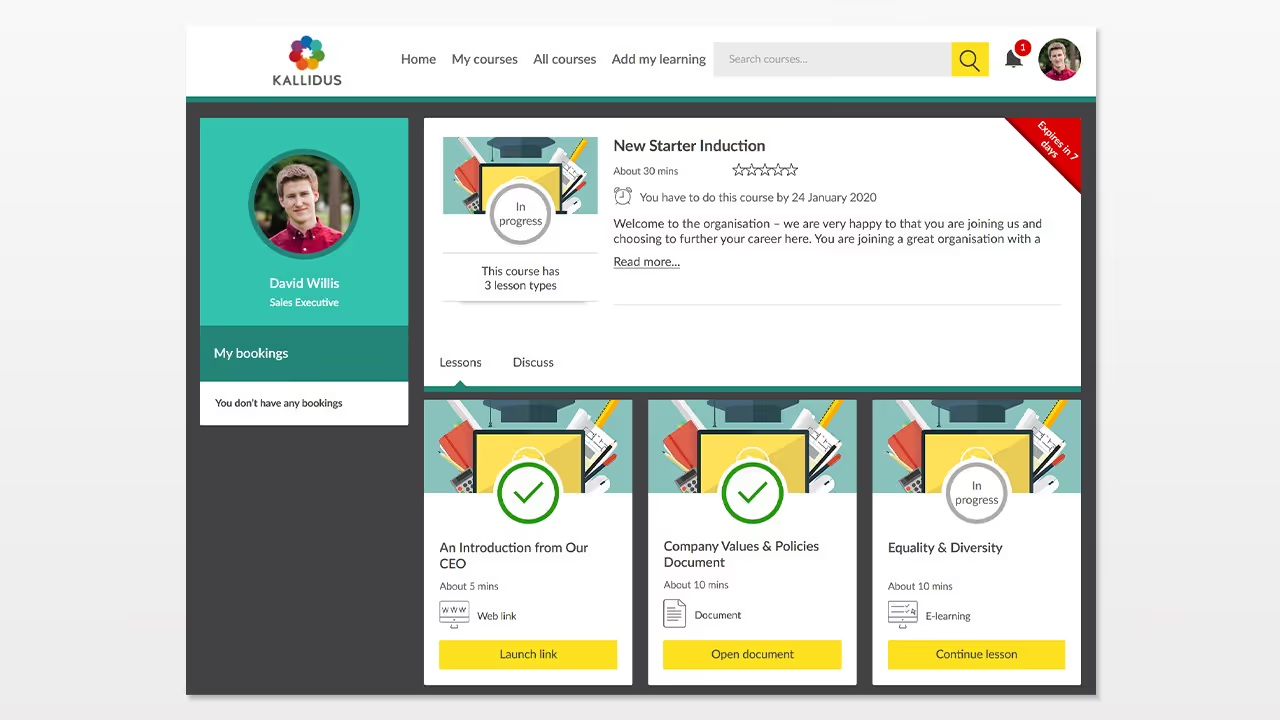
Kallidus Learn offers a gamified approach to retail training, making it ideal for small and medium-sized businesses. Its interactive modules and quizzes keep employees engaged while delivering essential skills and knowledge.
Retail training managers value Kallidus Learn for its simplicity and focus on engagement. It’s easy to set up, making it accessible even for businesses with limited resources.
Retailers choose Kallidus Learn for its gamification features and intuitive interface. It ensures employees stay motivated and informed while simplifying training management.
Key Features
- Gamified learning paths with quizzes and interactive modules
- Simple, intuitive interface designed for ease of use
- Customizable learning paths and course options
- Progress tracking and reporting for performance measurement
- Mobile-responsive design for remote access
Pros
- Easy to set up and navigate
- Gamification elements enhance engagement
- Strong focus on interactive content
- Suitable for small to medium-sized retail businesses
Cons
- Limited advanced reporting features
- Basic branding customization options
Integrations
Kallidus Learn integrates with popular HR and business applications, including BambooHR and other HRIS tools, providing seamless data flow for training management.
Ratings
4.4/5
Pricing
Pricing for Kallidus Learn is available upon request, and custom packages are available based on specific training requirements and business size.
9. 360Learning
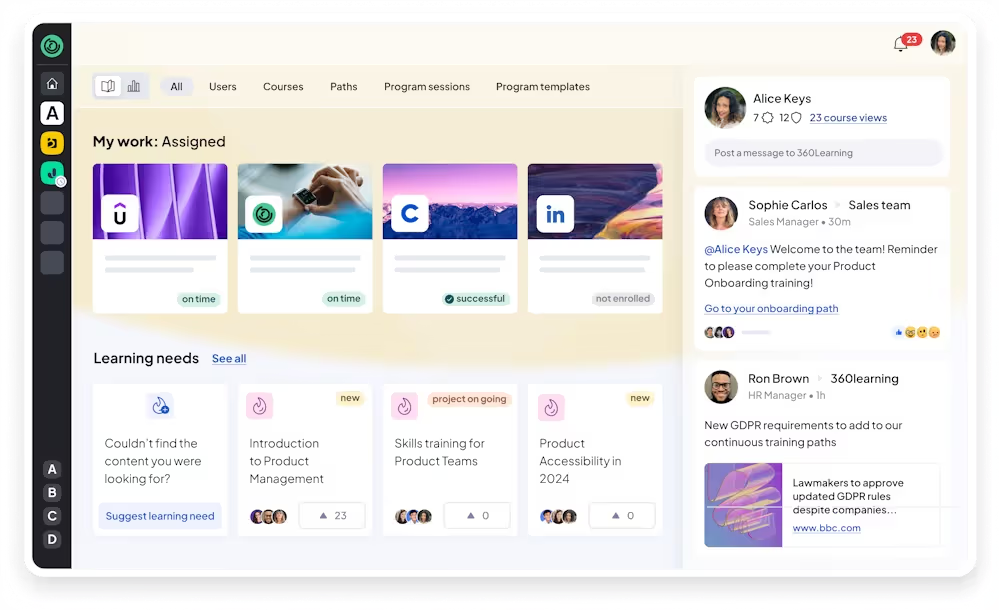
360Learning is a collaborative LMS that promotes peer-driven learning. It’s designed to foster knowledge sharing and employee engagement, making it an innovative choice for retail teams.
Retail training managers appreciate 360Learning for its social learning features. Peer feedback, interactive content, and self-paced learning help employees stay motivated and informed.
Retailers choose 360Learning for its focus on collaboration and adaptability. It’s a flexible platform for delivering customer service training, product updates, and ongoing skill development.
Key Features
- Social learning features with peer feedback and collaboration
- Customizable training paths and content authoring tools
- Robust analytics for tracking learning effectiveness
- Mobile-friendly design for training anytime, anywhere
- Support for multimedia content, including videos and simulations
Pros
- Strong focus on social learning and collaboration
- Robust analytics for detailed tracking
- Flexible, mobile-friendly interface
- Suitable for collaborative and self-paced learning
Cons
- Collaboration features may require training for some users
- Limited customization options for branding
Integrations
360Learning integrates with HR and CRM systems such as Salesforce, BambooHR, and Workday, facilitating data flow across platforms and enhancing training processes.
Ratings
4.5/5
Pricing
Pricing for 360Learning starts at $8/user/month, with scalable options for larger teams and additional features.
10. iSpring Learn
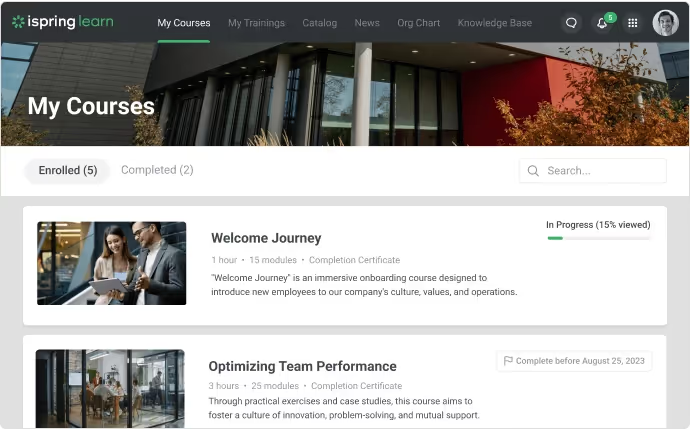
iSpring Learn combines ease of use with powerful features, making it a great option for retail businesses focused on continuous employee growth. It supports multimedia-rich training, including videos, quizzes, and simulations.
Retail training managers appreciate iSpring Learn for its straightforward setup and ability to create interactive content. It’s particularly helpful for onboarding and career development, ensuring employees stay engaged and skilled.
Retailers choose iSpring Learn for its focus on employee retention and mobile accessibility. It offers tools to create impactful training aligned with career progression.
Key Features
- Interactive course authoring tools, including video and quiz creation
- Mobile-ready learning paths for on-the-go training
- Detailed progress tracking and reporting for employee development
- Easy-to-use interface with quick setup
- Customizable training paths tailored to specific retail roles
Pros
- User-friendly and quick to implement
- Interactive authoring tools for engaging content creation
- Strong focus on employee development and retention
- Mobile accessibility for remote learning
Cons
- Limited branding customization options
- Some advanced features are available only at higher pricing tiers
Integrations
iSpring Learn integrates with popular HR and business software, including BambooHR and Salesforce, to support smooth data exchange for tracking and reporting.
Ratings
4.5/5
Pricing
iSpring Learn offers custom pricing based on business requirements, with options for additional features and support.
Must-Have Features of a Learning Management System (LMS) for the Retail Industry
Retail roles vary significantly, from sales associates to store managers. An effective LMS should allow flexibility in creating specific training tracks that align with different job responsibilities, ensuring relevant learning experiences for employees.
- Mobile-Friendly Access: Given the fast-paced nature of retail, employees benefit from accessing training on their mobile devices. A platform with responsive mobile access enables convenient learning, whether employees are in-store or off-site.
- Compliance Monitoring: Retail businesses often need to meet regulatory and safety standards. An LMS with compliance features helps keep training records organized and up-to-date, simplifying adherence to legal requirements.
- Analytics for Performance Tracking: Tracking progress is vital in understanding the impact of training. A system with detailed analytics provides insights into employee performance, identifying areas where further development may be needed.
- Engaging Content Formats: Interactive elements such as quizzes, videos, and simulations make training engaging and effective. A variety of content formats cater to different learning styles and improve retention.
- Integration with Retail Tools: Seamless compatibility with existing systems like HR platforms or point-of-sale tools allows for efficient data sharing and aligns training initiatives with broader operational goals.These features help create an efficient and engaging learning environment, aligning with the fast-moving demands of retail operations.
Benefits of LMS Solutions in the Retail Sector
Implementing an LMS in the retail sector offers numerous advantages that can significantly improve employee performance and overall business outcomes:
- Consistent Training Across Locations: A Retail LMS ensures that employees across all locations receive standardized training, creating a consistent knowledge base. This is especially valuable for large retail chains where uniformity in service and product knowledge is essential.
- Reduced Training Costs and Time: By moving training online, retailers save on costs associated with in-person sessions and reduce time spent on repetitive onboarding. Employees can complete training at their own pace, minimizing disruptions to daily operations.
- Improved Customer Service: With up-to-date training on customer service techniques and product knowledge, employees are better equipped to provide high-quality service, leading to increased customer satisfaction and loyalty.
- Enhanced Compliance Management: LMS platforms enable easy tracking of compliance training, ensuring employees meet safety and regulatory requirements. This is crucial in protecting both employees and the organization from potential risks.
- Higher Employee Engagement and Retention: LMS solutions often incorporate interactive elements and gamification, which make learning engaging and enjoyable. A well-trained and engaged workforce is more likely to stay, reducing turnover rates and increasing job satisfaction.
- Real-Time Analytics and Tracking: LMS platforms provide detailed insights into employee progress, allowing managers to track completion rates, identify knowledge gaps, and make data-driven improvements to training programs.
Things to Consider While Selecting the Best Retail Learning Management Systems (LMS)
Selecting the best LMS for retail requires a focus on tools and features that align with the unique needs of the retail industry. Retail teams often operate in dynamic, fast-paced environments where efficiency and accessibility are essential. Here’s how to choose the right retail LMS software to meet your business goals:
- Simple and Intuitive Design: An effective LMS for retail should prioritize ease of use. Both employees and managers benefit from a platform that simplifies training processes, reducing the time spent navigating the system and increasing adoption rates.
- Mobile-Friendly Access: With retail employees constantly on the move, mobile compatibility is crucial. The best LMS for retail offers full functionality on smartphones and tablets, allowing team members to access training whenever it’s convenient.
- Customized Role-Based Learning: Retail businesses have diverse roles, from front-line staff to store managers. A strong retail LMS software solution supports role-specific learning paths, ensuring employees receive relevant training tailored to their responsibilities.
- Seamless Integration: The ideal LMS for retail integrates effortlessly with HR systems, point-of-sale platforms, and compliance tools. This creates a unified ecosystem that simplifies employee data management and aligns training with performance metrics.
- Detailed Analytics: To measure success, the best LMS for retail provides actionable insights through comprehensive reporting. These analytics allow managers to monitor progress, pinpoint skill gaps, and make informed decisions about training improvements.
- Compliance Management: Retail operations often involve compliance with labor laws and industry regulations. Choosing retail LMS software that automates compliance tracking minimizes risk and ensures your team stays up-to-date.
- Growth-Friendly Scalability: As your business grows, the best LMS for retail scales seamlessly, accommodating more users and locations without disruption.
- Dedicated Support: A strong support system from the retail LMS software provider ensures smooth implementation and ongoing success. Reliable assistance helps you maximize the platform’s value.
By focusing on these features, you can select the right LMS for retail, empowering your team with the tools they need to enhance skills, improve performance, and deliver exceptional customer experiences.
Why is EdisonOS the Best Retail LMS Platform?
EdisonOS is a leading retail LMS software that simplifies employee training and improves outcomes for retail businesses. Here's what sets it apart:
Key Solutions
- Custom Learning Paths
- Create role-based courses for sales associates, managers, and back-office staff.
- Maintain consistency across stores while adapting to specific needs.
- Performance Tracking
- Detailed reports on course completion, quiz scores, and engagement.
- Identify areas for improvement and refine training programs.
- Mobile-Friendly Access
- Employees can complete training on any device.
- Easily access updates on products and practices without disrupting work.
- System Integrations
- Works with HR, CRM, and POS platforms like BambooHR and Salesforce.
- Keeps training data aligned with real-time operations.
- Interactive Tools
- Quizzes, badges, and leaderboards keep employees engaged.
- Encourages consistent participation in training.
Use Cases
Comparison: EdisonOS vs Other LMS Platforms
EdisonOS simplifies the training process, offering features that help retail businesses develop skilled, confident employees capable of delivering excellent service.
Conclusion
This blog highlights the transformative impact of Learning Management Systems (LMS) in the retail industry, guiding readers through the essential features, benefits, and leading solutions for 2025.
By focusing on tools like EdisonOS and other top LMS platforms, the blog demonstrates how an effective LMS can streamline employee training, enhance product knowledge, ensure compliance, and improve customer service.
For retailers looking to stay competitive, this blog provides valuable insights into selecting the right LMS to drive efficiency, boost employee engagement, and deliver an exceptional customer experience.

Recommended Reads
Podcasts







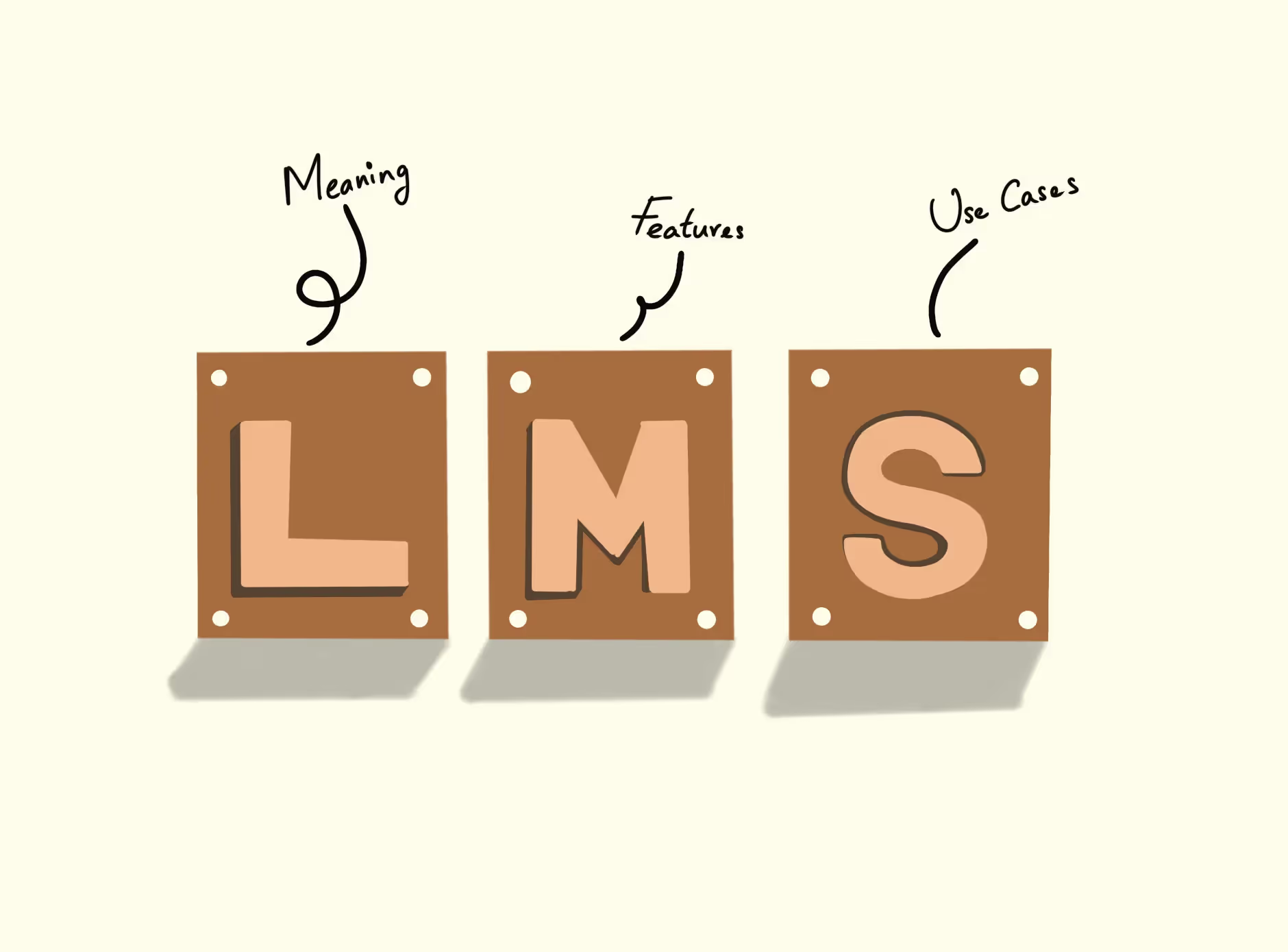



.png)
.webp)
